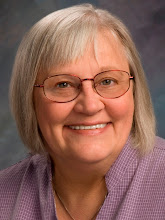I'm writing this on the eve of Super Tuesday and the Colorado Caucus. Having never lived in a caucus state until now, I've never observed the process first-hand. I sure would love to. But like many independents across the country, I'm shut out of the process.
Until recently, I can't say I cared very much. Let the parties have their party; I probably wouldn't vote for either of their eventual nominees anyway. But now my independent dander is up, a little bit anyway, and for one reason: I pay taxes that fund the major parties' primaries and caucuses. (Oh, how I wish the plural was "cauci"! To think of what I could do with that word!) And because by profession I'm an independent contractor, I actually write checks to pay those taxes, five times a year. Unlike a payroll employee, I have my fingerprints and DNA all over those payments. The process is a bit more personal for me.
Anyway, if I had wanted to, I suppose I could have registered as a party member, attend the caucus, and then re-register as an independent, but that seems a tad hypocritical. (Under Colorado law, it's up to the parties to allow me to register, attend, and then essentially unregister.) I don't know; maybe someday I won't see it that way and I'll break down and play their little game.
But again I say: my taxes help pay for the cost of the Colorado caucuses. I should be allowed to participate.
About half of U.S. states have open primaries, which means a voter does not have to be registered with a major party to vote in that party's primary. States with closed primaries, which restrict voting to those who have registered with either of the major parties, often have quirky restrictions about how long before a primary you would have to register with a party and how long you would have to wait afterward to re-register as an independent. You really have to research your state's voting regulations to stay on top of all this, and even then, the information isn't always that easy to find.
Partisans who object to open primaries do so because they feel that in order to have a say in who the party nominates, you should be a member of that party. Independents who support open primaries do so because they feel that the dominance of the major parties unfairly excludes them from the first round of voting. And then there's me. If I'm going to help pay for something, I ought to be allowed to partiticate, even if I sound like a broken record.
Partisans and independents who support open primaries also say that the change may increase voter participation, which is scandalously low in this country. Tomorrow may prove otherwise; I think we have a real horse race going this year, and the primaries and caucuses may attract more voters as a result.
For more on this, an excellent resource is IndependentVoting.org, where you can find out how to get involved in a campaign for open primaries across the country.
The Worst Blogger of 2008
17 years ago




No comments:
Post a Comment